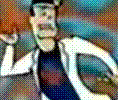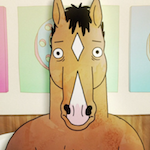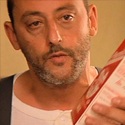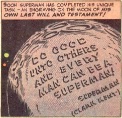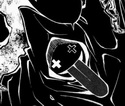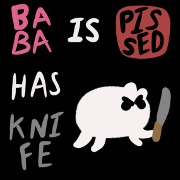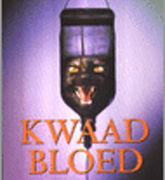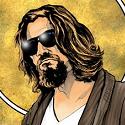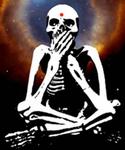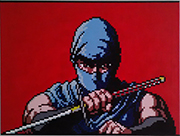|
Just finished Surely You Must Be Joking, Mister Feynman by Richard Feynman himself. Here's what I said on Goodreads:quote:I've always had a love for Richard Feynman, after hearing tales of his research and exploits from other savvy professors and students in related fields. I figured a book of anecdotes straight from the source would be awesome, right?
|
|
|
|

|
| # ? May 14, 2024 05:42 |
|
Just finished the Neil Postman's Technopoly and the Star Wars zombie book Dark Troopers by Joe Schrieber. About to start reading Death In Big Bend by Laurence Parent.
|
|
|
|
If you like that check out Death In Grand Canyon by Ghiglieri Myers. People die in some pretty fascinating ways in National Parks.
|
|
|
|
Beastie posted:If you like that check out Death In Grand Canyon by Ghiglieri Myers. People die in some pretty fascinating ways in National Parks. Thanks for the tip Beastie, I've never been to the Grand Canyon, but I'm always interested in reading that kind of stuff. My friend just let me borrow the Big Bend book, I took a ten day trip out there last year, and was pretty impressed with how how the park was. Some areas were were really desolate, so its no wonder people run into problems. I was lucky enough to go in the winter...couldn't imagine that place in the summer.
|
|
|
|
Beastie posted:If you like that check out Death In Grand Canyon by Ghiglieri Myers. People die in some pretty fascinating ways in National Parks. You might want to acquaint yourself with Jordan Fisher Smith's Nature Noir, then.
|
|
|
|
Just finished Humboldt's Gift by Saul Bellow. I found it a fascinating look at the relationship between the arts and the commodification of the Western world. The prose was wonderful, and the text's themes weaved together elegantly. I took issue with the novel's portrayal of women, and the amount of philosophical digression. I understand that the novel's digressions serve the narrator perfectly, but I don't think they always serve the reader. However, the book is fantastic overall, as it has this great postmodern slant about the myth transcendental truths and directly opposing narratives vying against each other for legitimization. Next up is The Ghostwriter by Phillip Roth.
|
|
|
|
Chiba City Blues posted:Just finished Surely You Must Be Joking, Mister Feynman by Richard Feynman himself. Here's what I said on Goodreads: I made it about halfway through, and I fully agree.
|
|
|
|
Just finished Jeeves by C. Northcote Parkinson. It was thoroughly enjoyable and often read as though it had been written by Wodehouse himself.
|
|
|
|
I just blew through Harlan Coben's Seconds Away, which I am really self-conscious about bringing up given all the more obscure-seeming titles I'm seeing here (for better or worse, mass-market mystery novels are my drug of choice; I rarely venture outside of that). I like that the book (and to a lesser extent, the previous one in the series, Shelter), presumably aimed at young adults, is placing its teenage protagonists in intense mystery-novel situations, and that their actions have severe physical and emotional consequences. It's certainly not a dense read; I finished it in about three hours. I suppose I can complain that it also falls back on some obnoxious tropes of the genre, and that the constraints of YA fiction were felt several times throughout the story. But I really like these characters, and having connected with them, the ending packs a pretty massive kick for what amounts to a beach novel. DivisionPost fucked around with this message at 17:49 on Sep 18, 2012 |
|
|
|
I've finished volume 7 from Robert Louis Stevenson's complete works (the only one in my possession), called Merry Men and other tales. Half of them are beautifully constructed ghost stories where it's open to interpretation if there was a ghost at all. Everything is rationally accounted for, but it's all underwritten by a ghost story. It creates a far eerier effect than ghosts waggling chains in your face. Merry Men, Thrawn Janet and Olalla fall into this category and the first two are definitely worth the time to pull from Gutenberg. The other half of the collection, Will o' the Mill, Markheim and The Treasure of Franchard, are morality tales (or philosophical examples, I'm not sure) where avatars of death or god feel free to get stuck in if needed. Although lacking the cleverness of the ghost stories, Stevenson makes them incredibly likable. Drove home to me that I need to actually read both Treasure Island and Jekyll and Hyde, rather than being satisfied that they were read to me as a child. Next was Erewhon Revisited by Samuel Butler. It's story is essentially that old joke where Jesus is arrested by the inquisition. Turns out that Higgs' last visit created a new religion, quickly co-opted and subverted by the double-talking intellectuals. Returning to Erewhon, he is plagued by guilt, infuriated by the gnostics, and very much smitten by the son he finds he left behind. In the first book, plot came a distinct second to satires and contrarian philosophies; this forumala was unfortunately reversed. There are a few gems, including a passage which manages to lift "live on in the people you leave behind" out from cliché and into beauty. However, the book is mostly a declaration of fatherly love, which a finicky plot fails to support. Perhaps it's because I'm not a father, but I got nothing from the majority of this book. Finally was James Purdy's Eustace Chisholm and the Works. To give you a sense of the book's tone; Eustace "Ace" Chisholm is living in a slum with his lover, an electric sign salesman named Clayton, writing poems in charcoal on old newspaper when his ex-common-law wife walks in... in short, it's Tom Waitsy as gently caress. At first this all just annoyed me, with slang picked up with tongs and slotted into Tennessee Williams-style speeches. Then a chapter detailing a back-ally abortion, which was so sickening it brought me into gear with the book. I appreciated the artificiality as gothic portents of doom, now that I know he can wheel out the big guns and really upset me.
|
|
|
|
Read Starship Troopers by Heinlein. It's well written and would have been engaging if it wasn't a look at a political/cultural system developed, seemingly, by a 13-year-old. I thought the literary style was similar to the Dune series in that it was light on action and heavier on philosophical meanderings, but, unlike Herbert, Heinlein isn't really insightful and presents a childish viewpoint on politics and society. Certainly some of the themes (like sacrifice) are valid and easy to relate to, but for the most part I felt like the book is a dull failure. I hold The Forever War in much higher esteem than Starship Troopers, and frankly I'm kind of disappointed I wasted money on it.
|
|
|
|
The Amateur by Edward Klein. This book was both hilarious and frustrating to read. It's a very skewed book that Republicans should not try to use as evidence why Obama should not be reelected. There's a 45 page chapter about Oprah and it demonizes Michelle Obama for not offering Oprah the white house famous pie, instead giving her almonds. That's a small but accurate sample of a big picture.
|
|
|
|
Cole posted:The Amateur by Edward Klein. This book was both hilarious and frustrating to read. It's a very skewed book that Republicans should not try to use as evidence why Obama should not be reelected. There's a 45 page chapter about Oprah and it demonizes Michelle Obama for not offering Oprah the white house famous pie, instead giving her almonds. Does the author ever justify/explain the pictures literally comparing Obama to Al Capone?
|
|
|
|
funkybottoms posted:Does the author ever justify/explain the pictures literally comparing Obama to Al Capone? In the book Capone's name only comes up once in the book, in a quote out of a Feb. issue of The Economist. The context is that Illinois, particularly Chicago, have been a hotbed of corruption and that since 1972, four out of seven governors have been convicted of corruption, but no mayors ever got convicted of corruption, including Bill Thompson, who was backed by Capone. Obama comes into play because he is a product of Chicago politics. On a side note, I absolutely love finally having a reader so I can reference these things so quickly. Where were these things when I was in school?
|
|
|
|
The Great Game: On Secret Service in High Asia by Peter Hopkirk, describing the 100 years of British/Russian political and military maneuvering in central asia. This is a great story of mountain explorers of incredible courage and politicians of unbelievable imperialistic hubris--there are tons of great characters who appear here (like Francis Younghusband). I first read this the a long time ago, and the story holds up, especially now that you can read it with a tab open to google maps, which really helps.
|
|
|
|
Under & Alone by William Queen, which went into his two and a half year undercover investigation into the Mongols MC. It was fascinating to read how an organization like that operates openly across the Southwest, much less staying alive when they seem to consistently do their best to piss off the Hells Angels. I actually want to pick up No Angel by Jay Dobyns, since he went undercover with them, and see how much of the stories and culture line up.
|
|
|
|
Well, Unfit for Space, I finished The Dreams our Stuff is Made Of and I have to say it didn't go too well. I swear this guy has a beef with Le Guin. Admittedly I haven't read all her books, just some of the Earthsea ones, but I do read her posts on this blog Book View Cafe, and I have to say she's never come off as a radical feminist or a feminazi or whatever he seemed to believe about her. I even did a google search in case this was some aspect of her I wasn't familiar with. Unless my google-fu is really weak, three different searches didn't find anyone who agreed with him about her being some crazy feminazi. If it had stayed in that chapter I would have just agreed to disagree, but he kept bringing it up again and again. I don't regret reading it (even with that horrible chapter, I found it really interesting!) but it seriously lowered my opinion of this person (not that I had much of one. I'd never read any of his stuff.) I'll definitely read some more essays on sci fi, though probably not for a little while. I have some other stuff to read first.
|
|
|
|
Bab Ballads (1970) - W.S. Gilbert, James Ellis Roll on, thou ball, roll on! Through pathless realms of Space Roll on! What though I’m in a sorry case? What though I cannot meet my bills? What though I suffer toothache’s ills? What though I swallow countless pills? Never you mind! Roll on! [it rolls on] Gilbert is mostly known to modern audiences as half of theater duo Gilbert and Sullivan. Most people, however, despite their knowledge of at least one or two of the duo’s light operas couldn’t, if pressed, be sure which was the composer and which the lyricist. This book ought to put that to rest. A series of comic poems, complete with brilliant illustrations drawn by Gilbert himself, these were originally published in periodicals in the eighteen hundreds. No true canonical list exists, but the poems have received their title because Gilbert signed the drawings “Bab,” a slang term for baby during the period. James Ellis’ magnificent reprinting has trumped just about everyone in this category however, including Gilbert himself. Gilbert oversaw three printings of the Bab Ballads, collections of various ones and in the third, he combined the first two and omitted the poems he thought somewhat lacking. Like most artists, he was not the best judge of his own work and it was the poems he omitted that the public seemed to love the most. Ellis has taken a utilitarian approach, even including three or four poems of rather dubious authorship, simply because they contain a Bab drawing. Regardless, this collection of over 150 poems is absolutely side splitting. Gilbert was more or less accused of cruelty by critics in his day, but it’s that very sense of detached misery that makes his poems so hilariously funny. He was, frankly, ahead of his time in many ways and these poems are desperately funny when they lampoon imperialism, gender relations, the passions of first love, familial responsibilities. Some people find offense in his caricatures of Africans and Arabs. And perhaps I would too if not for the fact that he lampoons the English even more; no racism here; Gilbert is an equal opportunity offender. All men, politicians, policeman, African natives, missionaries, curates, bishops, lovers, businessmen, Frenchmen, actors, writers . . . all are fools. And, yes, women too. All utter fools. The only difference is that they are all fools in slightly different ways. If this seems a dim view of human nature, it doesn’t feel like it because the poems are so incredibly hilarious. There are occasionally more serious poems, particularly the tragic Eheu! Fugaces! Which finds an elderly sinner returning to the church he had shunned, afraid of what awaits him beyond death’s door. But the vast, vast majority of these poems are hilarious romps of political incorrectness and all too accurate satire on all aspects of society. As well, Gilbert has an incredible gift for poetry in the technical sense; his rhymes are often as amusing as the words he’s actually writing and the way he absolutely murders meter, often making the reader lean on the incorrect syllable of a word for a line to work, is side splitting. The drawings as well show great talent as an artist; they are beyond grotesque. Gilbert himself was uncomfortable with these and replaced them with more dignified drawings in later printings. Ellis gets this right too, returning to the original drawings. As one critic stated, every Gilbert libretto is simply three or four ruined Bab Ballads. All too true; all too true. Here is the cynical satirist in his purest form. Brilliance and if you think humor can’t be art, read this book. 5 out of 5 stars.
|
|
|
|
Caustic Chimera posted:I swear this guy has a beef with Le Guin. Probably. Disch was a well-regarded literary SF writer from the same era as Le Guin. If it makes you feel any better, he was a leftist, outspoken atheist, and gay, so it's not like he was being Rush Limbaugh there or something. Sorry if you didn't enjoy him at his cattiest and most condescending.
|
|
|
|
The Forgotten Garden by Kate Morton. It's about this woman who discovers that her parents aren't her real birth parents and she spends the rest of her life trying to figure out who they were. She gets her granddaughter involved in it too. It also tells the stories of her relatives back in "the old days" before she was born. I liked it very much. Finished it in about 22 hours. M*A*S*H by Richard Hooker, the book the movie and television series was based on. Great stuff. Read it on the plane from Norway to Spain. Maya's Notebook by Isabel Allende. Read this one in about 22 hours too. The difference from "The Forgotten Garden" is that I did those 22 hours in more or less one sitting. drat good book, gently caress sleep. It's about this girl - Maya - who's on the run from the law and the mafia in Vegas and has to hide out in Chile. It had everything. Lust, romance, drama, action, comedy and history. 
|
|
|
|
I just finished Foreigner and Invader by CJ Cherryh, the first two books of her long atevi series. In fact, I finished Invader last night when I tried to get to bed but wound up reading it for four hours straight as I couldn't put it down. They're good, good sci-fi about a human diplomat between deceptively humanoid aliens and a planet-bound human settlement. That's leaving out a lot of backstory and oversimplifying, but that's the essence of it: a human needing to learn - to understand these aliens when they're decidedly not human. There's heaps of politicking and intrigue that I just loved. If you pick up Foreigner, skip the first two prologue bits, or skim them - they're kinda interesting, but I've bounced off of the book twice before I managed to get through them to the start of the main story. They're roughly a hundred pages, then Bren (the main character) wakes up in the middle of the night with an assassin outside on the lawn. Everything goes from there.
|
|
|
|
I went on a real bender this weekend and read books by Stephen White, Jonathan Kellerman, Lisa Lutz, and Chris Bohjalian. (One of these things is not like the others, okay, well it kind of is, there's a mystery there.) Line of Fire (Stephen White) was good; he has set it up to be the penultimate book in his Alan Gregory series. I love the series--some way more than others--and will be sorry to see it go. I have a couple of criticisms of this particular book, some large and some small, but overall it was a good read, which they usually are. Trail of the Spellmans (Lisa Lutz) was probably not the best choice to jump into as I haven't read others in this series and probably won't, unless I'm desperate. Not that there's anything horrible about it, but there's a lot of stuff out there and a lot of it is more to my taste. I would have liked this if it were funnier, or less frenetic. I did like the footnotes and appendix. The Sandcastle Girls (Chris Bohjalian) was the Serious Fiction of the Week, a multi-generational family saga with the Armenian genocide as its canvas. Very good writing, lots of emotion. Victims (Jonathan Kellerman) was another long-running series of another shrink, Alex Delaware. I've been reading books in this series for decades. The problem is that I have to read them fairly soon after they're published, because otherwise I will forget that I've read them and it's very annoying to get into a book and realize you've read it before. This episode was gorier than a lot of them, but the combination of psychological thriller/police procedural is a winner for me. I have a fairly big beef, though. One of the things all these books had in common was errors that should have been caught by a proofreader or copy editor somewhere down the line. They are all Big Six publishers, most of these books hit The List, you would think someone would have noticed. In Line of Fire Dr. Gregory calls his lawyer, because his practice partner has just shot his wife and he doesn't want to talk to the cops just yet, and his lawyer says he can't help him because his partner's husband has just engaged him to defend her. Okay. A few pages later, with his wife in intensive care, Gregory does the standoff thing in a room with his partner (Diane), her husband, and a couple of other people, and at the end of it he recommends the lawyer to the husband...except that's already been done. Okay, I see how this can happen, what I don't see is how it isn't caught and fixed--and it's an easy fix--before the book goes out. In Victims one of the people interviewed gives a very precise number for how long he's owned a certain property, and much is made over his precision. A couple of pages later Delaware hits him with the precise number again--like, just to make sure--and the guy comes back with a different, but also precise number. And nobody mentions that it's a completely different number? Someone should have either (a) mentioned it and explained it or (b) made it the same number. Trail of the Spellmans really cheesed me off because on page five it became apparent that whoever proofread it, it wasn't someone who knew the difference between anecdote and antidote, two things that are pretty different. I reiterate, these are books from Big Six publishers. This is more what I'd expect from self-pubbed ebooks. Now in the case of Line of Fire and Victims it's possible that I overlooked something, missed a key element, something like that. But drat, I do know the difference between an antidote and an anecdote. Okay, end of rant.
|
|
|
|
2312 by Kim Stanley Robinson Eughhhuggh this book. You know that feeling when you're about 3/4ths of the way through a book and you only finish it because you don't want to have not finished it? That's where I was with this book. It picked up again for a while, got really, really strong, then just dropped off the table again at the ending. Swan was just about completely unlikeable as a character. She was only involved in the intrigue of the main plot because her grandmother was actually somebody. She bumbles into saving a bunch of lives because of her ~*Mercurial*~ impulsive lovely indigo child behavior, and then once again is pushed to the side as the real Do Somethings of the book get poo poo done and finish it out. However, the plot just lands with a thud. The book had pretty disparate elements from the get go, with the two feature pieces being times where Swan and Wahram are stranded somewhere for a period of time, but it was building an interesting story about consciousness, quantum computing, and the idea of machines "coming alive" and how it would further impact a humanity that has already been through the wringer the last couple hundred years. I will say that every word of the Reanimation plot was fantastic. I loved the idea, I loved the execution, I even loved Swan's enthusiasm and actions afterward, it was great. How does it all end? Everyone gets arrested. Seriously. There are about 400 qubanoids (quantum brained human androids), and their 24th century sperglord master, they all get arrested and sealed inside a starship terrarium and blasted out into deep space. The main inspector who orchestrated dusting his hands and proclaiming "Hey at least we bought some time". Swan and Wahram then get married, theeeeeee eeeeeeeend. Thbbbbbbbbbbbbbbpt. It wasn't a terrible book, and i wouldn't even be opposed to reading another book in the same universe, but it wasn't great, or even that good. Loving Life Partner fucked around with this message at 12:28 on Sep 24, 2012 |
|
|
|
|
The Murder of Roger Ackroyd, bu Agatha Christie. Actually correctly guessed who the culprit was! I won't pretend I got there through logical deduction, though. Amazon's editorial review of the book mentioned that it had a gimmick that a lot of people considered 'unfair' at the time, which helped bring me to the idea that the narrator was also the culprit. I think I need a break from Agatha. It's getting harder and harder to actually process what's going on in the stories. Maybe I'll reread John Dies at the End as preparation for the imminent release of This Book is Full of Spiders.
|
|
|
|
Just finished re-reading the original 4 books of the Hitchhiker's Guide series for the first time since high school and, sadly, I probably should have just let them continue to live on in their perceived greatness in my memories (I'm now 36). The first book was just about as good as I remember, the second, still strong, but not as compelling. Unfortunately, by the middle of the third and all through the fourth, I found myself looking forward to just "getting it over with." I didn't even bother reading Mostly Harmless, which I still haven't read, and now, probably never will. This entire experience saddens me because these were my "Absolute Favorite Books of All Time, Ever," for years and years, and the fact is, now they don't even chart in my Top 25. Have I grown out of them? Are the books just a product of their time? I don't know.  [edit] I guess it fall into the same category as movies like "Monty Python and the Holy Grail." Loved it in school, still quote it from time to time, can't really stand watching it anymore...
|
|
|
|
EDIT: Wrong thread
|
|
|
|
|
tonytheshoes posted:Just finished re-reading the original 4 books of the Hitchhiker's Guide series for the first time since high school and, sadly, I probably should have just let them continue to live on in their perceived greatness in my memories (I'm now 36). Art definitely gives you an emotional response that depend a lot on your life at the time you're exposed to it. I tried to read Ender's Game again after reading it at 13 or so, and I just don't have the same connection to it.
|
|
|
|
Recently reread Ender's Game after getting it on Kindle. Still kicks ace the 3rd reading through. I have also started re-reading Asimov's Foundation series, but the books are too cerebral for my pew pew brain to be patient with, so I'm not sure how long I'll stick with that project. I may go back and re-read Dune (just the first one), and am also considering some other classics of my youth, books like Armor (Steakly) and the Cadre trilogy (O'Riordan).
|
|
|
|
 While no literary gem, it delivered some pulpy excitement - pretty much what I expected, then maybe a bit more. And, it is worth noting, this is a seriously brutal book. I rarely wince at violence/gore but wow, some of the scenes, both action and medical, were really intense.
|
|
|
|
civilian.d posted:While no literary gem, it delivered some pulpy excitement - pretty much what I expected, then maybe a bit more. I love that book, but was incredibly disappointed with the sequel.
|
|
|
|
Finished Dirk Gently's Holistic Detective Agency last night. It was a fun book, I read through it in only a week (which is short for me, shut up  ). I haven't read a Douglas Adams book in years (since 6th grade!) but I could instantly recognize his writing style. ). I haven't read a Douglas Adams book in years (since 6th grade!) but I could instantly recognize his writing style.
|
|
|
|
Be sure to catch the sequel, The Long Dark Teatime of the Soul. I think the first one is better, but they're both worth reading and a lot of fun.
|
|
|
|
Unfit For Space posted:Probably. Disch was a well-regarded literary SF writer from the same era as Le Guin. If it makes you feel any better, he was a leftist, outspoken atheist, and gay, so it's not like he was being Rush Limbaugh there or something. Sorry if you didn't enjoy him at his cattiest and most condescending. I thought about the book some more. At the very least I quite enjoyed the first half or so of the book. Honestly, I think part of my problem is mixing politics/opinions and authors. Typically I stop reading an author if I find out they have an awful opinion on something, or if they just come off as an rear end in a top hat. I suspect this is an unfair opinion to have, but I have like 200+ books to read, and it grows faster than I can read it. So cutting out authors with bad opinions helps. But if you have any books of his you personally recommend, I'll give him another shot. 
|
|
|
|
Just finished The Iron Dream. It was an interesting read and the fake Afterword for Hitler's fake book topped it off perfectly with what I believe is called Dramatic Irony. Hitler's self insert and Gary Stu, Trueman Jaggar, was an interesting character that in any other literature I would have rolled my eyes blind and thrown the thing in my toilet and burned it but for what Norman Spinrad was trying to accomplish, it was amazing. 10/10
|
|
|
|
Just finished China Mountain Zhang by Maureen F. McHugh. I loved this book. There's very little in the way of plot, but she makes up for that with some of the most vivid characters I've ever read. It's kind of like reading about people's everyday lives in a Chinese dominated future. This book will definitely have me reading more speculative fiction.
|
|
|
|
Fantasy Freaks and Gaming Geeks by Ethan Gilsdorf 2.5 stars Too much navel gazing and amateur psychology. I just wanted to read a funny exposition on geek subcultures. That stuff, when present, was good; but more than half the book was about the author's life and insecurities. Sorry to hear about your midlife crisis, dude. It just doesn't illuminate any of your subject matter in any meaningful way.
|
|
|
|
Caustic Chimera posted:I thought about the book some more. At the very least I quite enjoyed the first half or so of the book. Honestly, I think part of my problem is mixing politics/opinions and authors. Typically I stop reading an author if I find out they have an awful opinion on something, or if they just come off as an rear end in a top hat. I suspect this is an unfair opinion to have, but I have like 200+ books to read, and it grows faster than I can read it. So cutting out authors with bad opinions helps. But if you have any books of his you personally recommend, I'll give him another shot. I guess his classic SF novels would be considered to be Camp Concentration, 334, and On Wings of Song. I just got out The Dreams Our Stuff Is Made Of from the library again to see what he said that was supposedly so terrible, and I think you're overreacting a bit. His complaint isn't that feminism and multiculturalism are bad things, but that Le Guin wound up making her work more about her ideology than about good writing, which he explicitly says happened at some point to just about every classic SF writer irrespective of what their ideologies were. His personal beef with her is also pretty obvious, since it's mentioned right in his discussion of her work!
|
|
|
|
Finished A Clash of Kings, The Secret River and Fight Club in the last few weeks. Also The Virtue of Selfishness, skipped some of the essays. A Clash of Kings was great, I loved the whole Harrenhal part with Arya and Reek in Winterfell, which where different from the show. While Dany did literally nothing the entire book. Bran is a lot more active than in the tv series again, albeit active in an unusual way. Liked it a lot more than the first book, I am afraid if I start Storm of Swords now, I will probably burn through all the available books before the next one. The Secret River, was suggested by someone here, I don't remember who thought. Decent historical fiction about an Emancipate and his family adjusting to life in the colony of New South Wales. For a book that the main feature being emancipation, the first half is London, where the main character, William Thornhill struggles with life as a low class citizen. He is a very frustrating character, an sorts of an Anti Hero, getting the aboriginals killed just so he could convince his wife of something and also consistently stealing from his employers. Was hoping to learn more about the lives of the first people living Australia but most of the book was descriptions of Thornhill sailing his boat around and admiring the landscape. The Virtues of Selfishness, was really preachy, Rand lambasted any other school of thought and did so often. She was of the thought a man is either evil or good, either you follow her objectivist philosophy or you follow another whimsical one. That is pretty irrational from Rand. I did though learn another definition of Selfishness. Although if someone were to take it word for word they would act less humane than a robot. Fight Club, is probably the best one from the bunch, really recommend it to anyone who hasn't read it yet or watched the movie adaption. My first time reading and I shamefully admit to have never watched it. There is only three characters but only one you really get to know, the narrator and through him Tyler. The themes about Anarchy, Consumerism and Psychology towards the end are powerful. This was my only Palahniuk book, looking forward to reading something else of his, though this is considered his best it seems. Hopefully by not much... Ulio fucked around with this message at 04:14 on Sep 28, 2012 |
|
|
|
Just finished Stranger in a Strange Land, and god, what a horrible book. Imagine my surprise to see it on any list of popular science fiction... I actually feel less inclined to read more sci-fi now that I've endured that. So much about the story just felt unnecessary, and the open sexuality blended with the occasional dash of homophobia just made whatever point Heinlein was trying to make seem hollow. Really, it could have ended at the conclusion of the first half, but I guess Heinlein didn't get his fill of depicting deviant sexual relationships.
|
|
|
|

|
| # ? May 14, 2024 05:42 |
|
Exitlights posted:Just finished Stranger in a Strange Land, and god, what a horrible book. Imagine my surprise to see it on any list of popular science fiction... I actually feel less inclined to read more sci-fi now that I've endured that. So much about the story just felt unnecessary, and the open sexuality blended with the occasional dash of homophobia just made whatever point Heinlein was trying to make seem hollow. Really, it could have ended at the conclusion of the first half, but I guess Heinlein didn't get his fill of depicting deviant sexual relationships. It's been nearly ten years since I've read it, so I don't remember the homophobia. If that's true, it's a shame.
|
|
|



